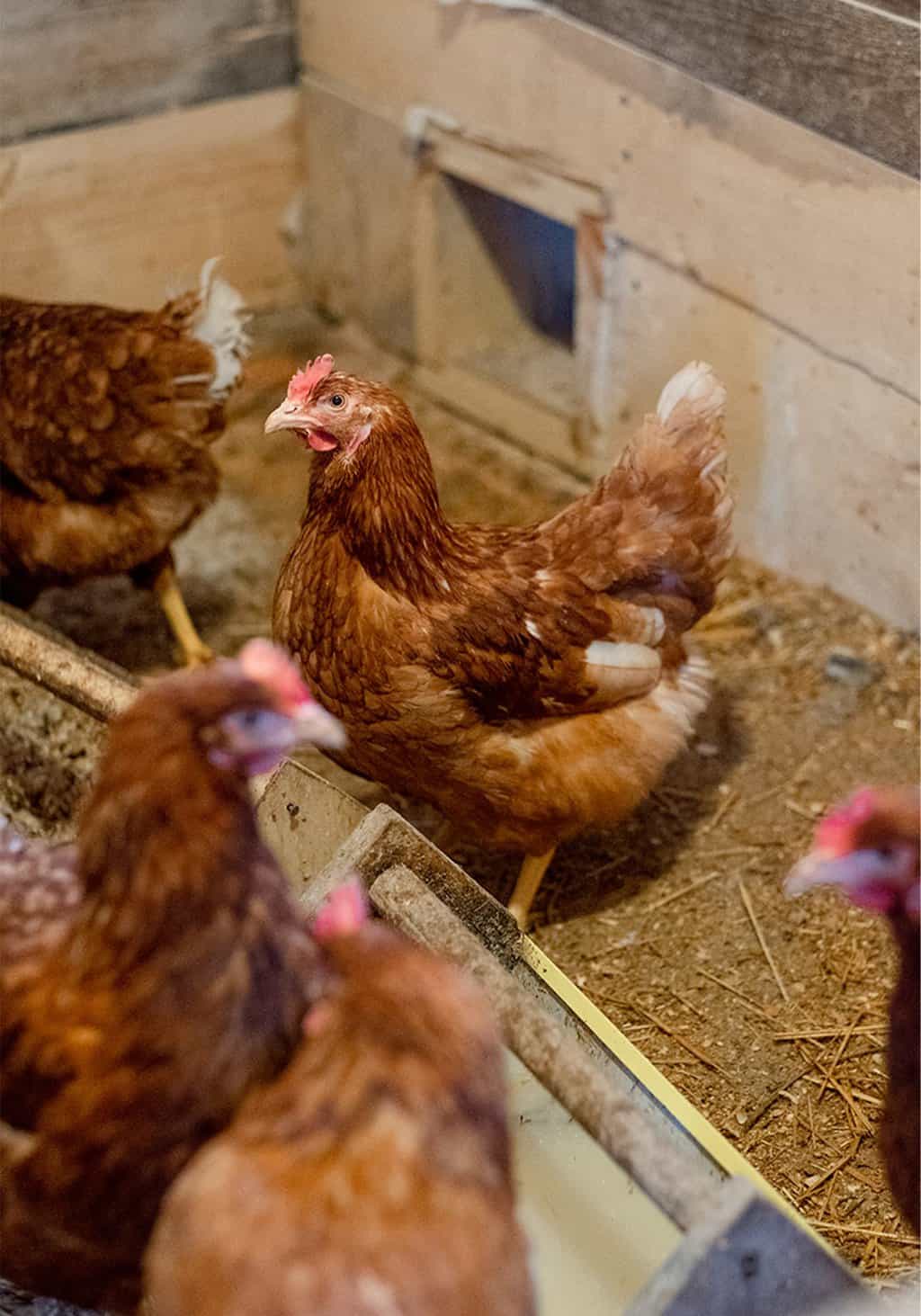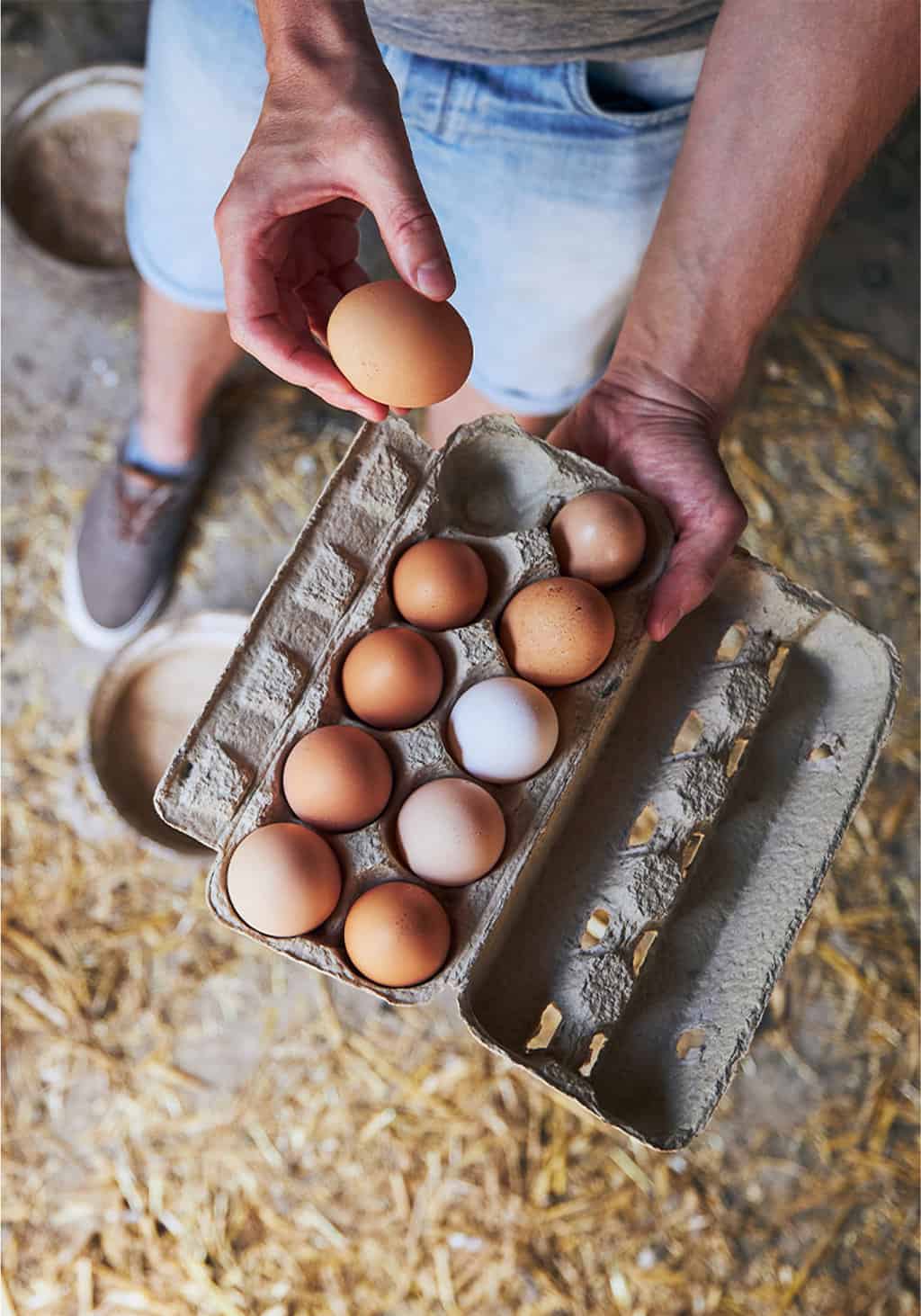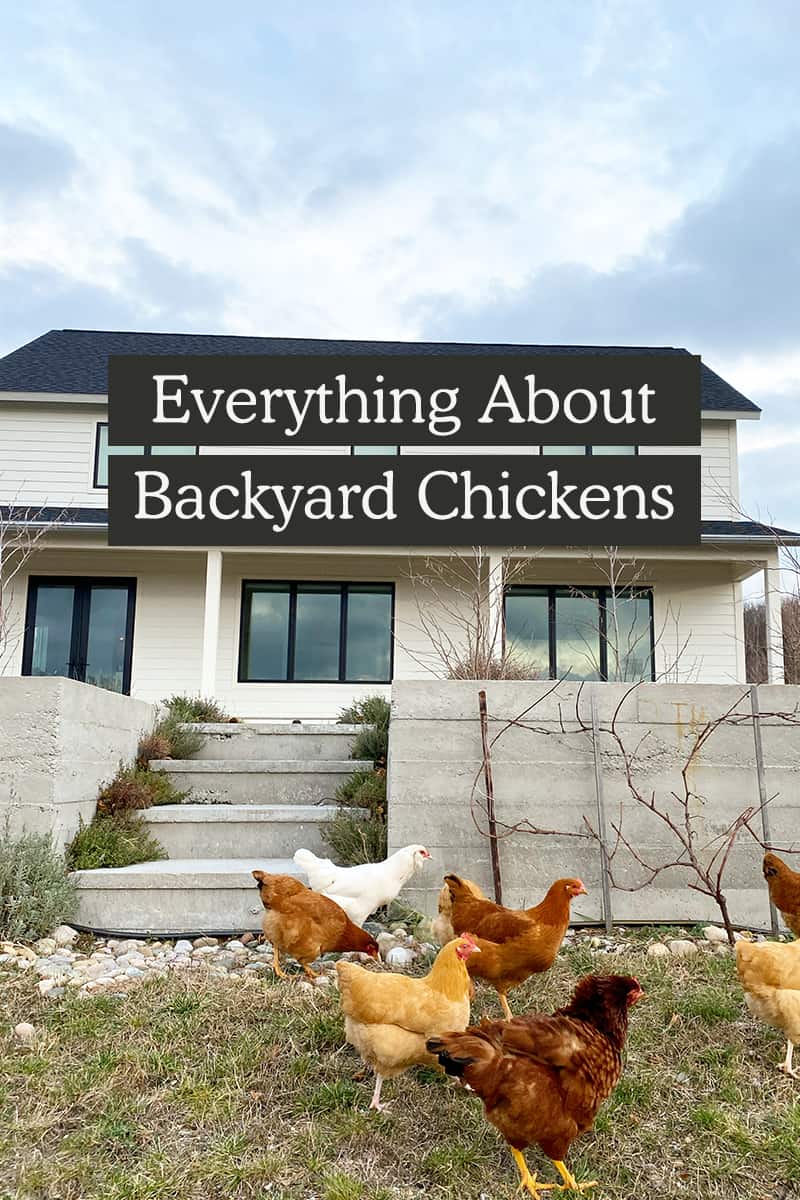
Backyard chickens have grown in demand in the last few years as more and more people seek ways to be more self-sufficient and connect to nature, so what are the best tips for backyard chickens? What you should know about when selecting your chickens and everything else you may want to know about starting your own flock is all in this blog post along with this podcast episode.
Give the episode a listen if you are wanting to dive even deeper and have a fun conversation with some friends.
In this blog post, though, we will be discussing the best things to know about backyard chickens and some of the best tips for raising your own chickens at your home as well as things to expect.
If you are getting backyard chickens for the first time from chicks, here is a quick post on what to know beforehand.
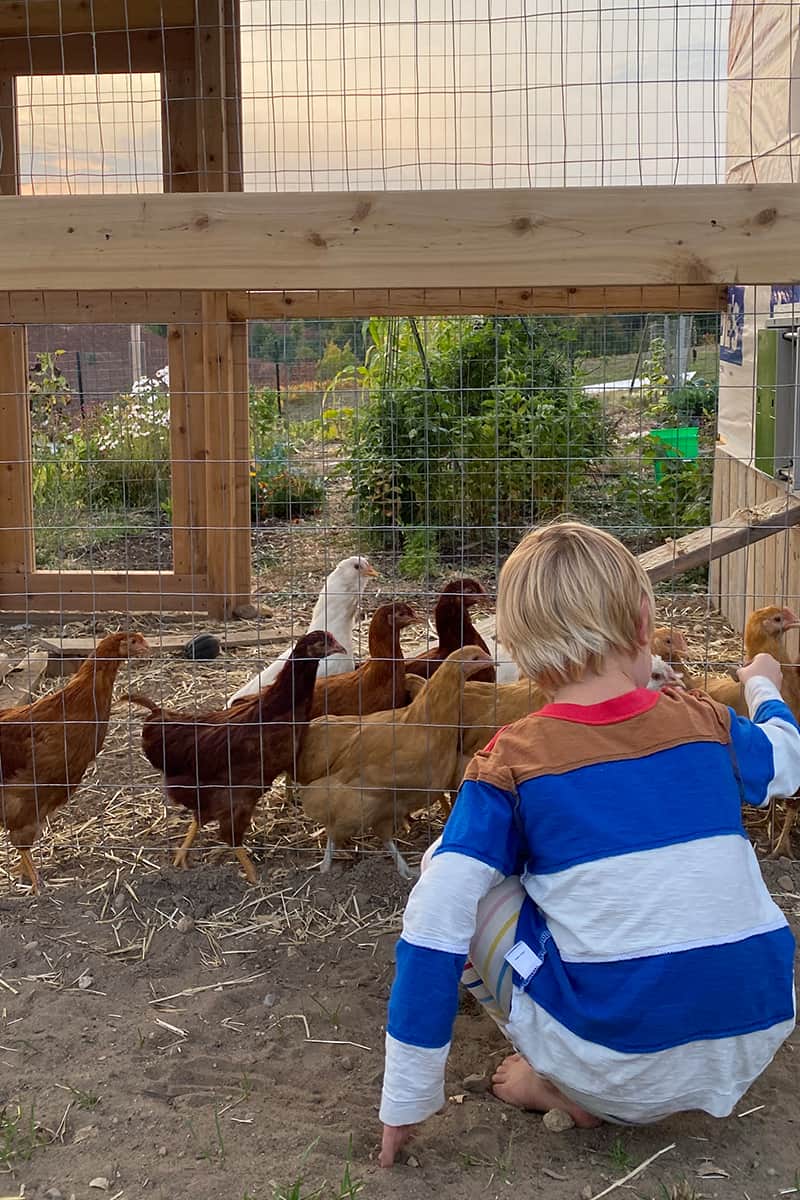
Tips on How To Raise Chickens In Your Backyard
Choose the right breed
Certain breeds of chickens are better suited to backyard raising than others, so research all your options before buying. Look for breeds that have a good disposition, are easy to handle and care for, and lay plenty of eggs.
Give them enough space
Chickens need room to move around and exercise. Ensure their coop and pen have enough space to accommodate them, with plenty of shade and shelter from the heat. And if you’re looking for a chicken water heater, we’ve got some favorites we can recommend and our DIY chicken waterer.
Feed them properly
Chickens need a balanced diet rich in minerals, protein, vitamins, and other nutrients. You can provide this by giving them commercial feed and table scraps, insects and plants they find in their pen. You can take a look at our blog post about the recommended feeds for your chickens.
Provide a clean environment
Keep the coop, pen, and surrounding area scrupulously clean to avoid disease and pest problems. Clean out droppings regularly and replace bedding as needed.
Install a good fence
Ensure your chickens are protected from predators by installing sturdy fencing around pens or coops. It should be high enough to deter any would-be intruders. Check out these automatic chicken coop doors! Your feathery friends will be totally safe and sound, no need to worry.
Check for parasites
Many parasites, such as mites and lice, can affect chickens, so regular inspections are essential. If you spot any signs of infestation, treat the affected birds immediately with an appropriate product or by consulting your veterinarian.
Replace bedding
As the bedding materials in the coop and enclosures become dirty or contaminated, replace them with fresh ones. This will help to prevent infections and diseases from developing in the birds.
Handle chickens properly
Chickens can be skittish creatures so always handle them gently, using both hands and cupping them against your body. Never grab or pick up a chicken by its wings.
Get vaccinated
Make sure to have your chickens vaccinated for common diseases such as fowl pox, Gumboro disease and Newcastle disease. Vaccination can help protect the birds from serious illnesses and mortality.
Monitor eggs
Regularly check for eggs in the nests and collect them as soon as possible. This will help prevent a buildup of bacteria and discourage predators from raiding the nests. It’s also a good idea to mark each egg with an identifying number or symbol to keep track of which ones have been laid and when.
Frequently Asked Questions
How long till my backyard chickens will lay eggs?
For most breeds, it takes 4-6 months from hatching for them to start laying eggs daily. A few things to know about egg-laying:
- Different breeds produce different colored eggs as well as different size eggs. Also, different breeds lay a different number of eggs in their lifetime.
- Most hens lay their best from spring to the middle of fall, and many stop laying once the cold arrives. This is in order to move their energy to keep themselves warm rather than focusing on spending energy on lying. It takes a lot of energy to stay warm. Don’t worry too much if your broody hen abandoned eggs.
- You can also expect most chickens to be a good layer for 2-3 years. After that, they will begin to dwindle in production.
- Eggs unwashed and in a refrigerator can be kept for up to 6 weeks
How do Chickens Help in a Garden?
Most people get backyard chickens for their eggs, but they offer far more benefits to a home gardener than just egg-laying. In fact, they are extremely beneficial to the soil and build healthy soil for your garden. Here are some things to know:
- Chickens can consume most kitchen scraps. So before composting everything you can add into their run, let them enjoy and then move the floor of your run into your compost to generate nice heat to your already existing compost.
- Chickens will clean up a garden and clear out bugs and issues in the garden as well as break down plants and spread compost.
- Chicken poop is an amazing fertilizer. It is nitrogen-rich and great as this is removed by many plants, such as beans, for instance. The chicken poop will cure in the garden within 5-6 months of rest.
- The bedding in the chicken coop acts as an amazing source of heat and addition to compost. The hay/cedar chips/pine shavings or anything you use builds up your compost with all the waste from the chickens.
- The egg shells are amazing additions to compost and as garden fertilizer.
- Chickens also will spread compost very quickly in a garden space. If you drop your compost and leave them with it, they will cover the area within a few hours without any work from you!
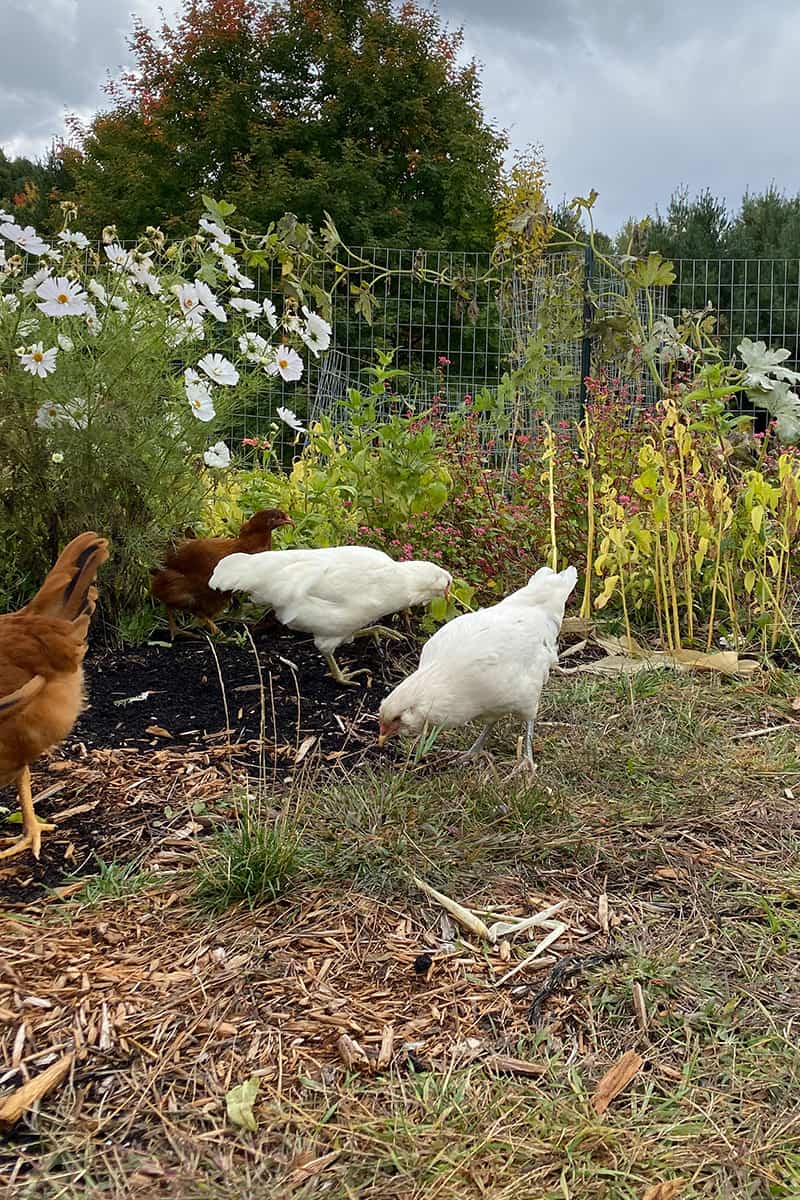
Do You Need a Rooster for Your Chickens?
The quick answer is no. Not every flock of backyard chickens needs a rooster at all. The rooster is necessary if you want to have fertilized eggs for hatching. If this isn’t of interest, then you by no means need one. It is important to know, though, that there will become a rank in your coop though.
Your hens will choose a dominant female hen, and she will rule the roost quite literally. Just watch out for aggression and fights, as chickens will attack each other when bored or if they see a difference.
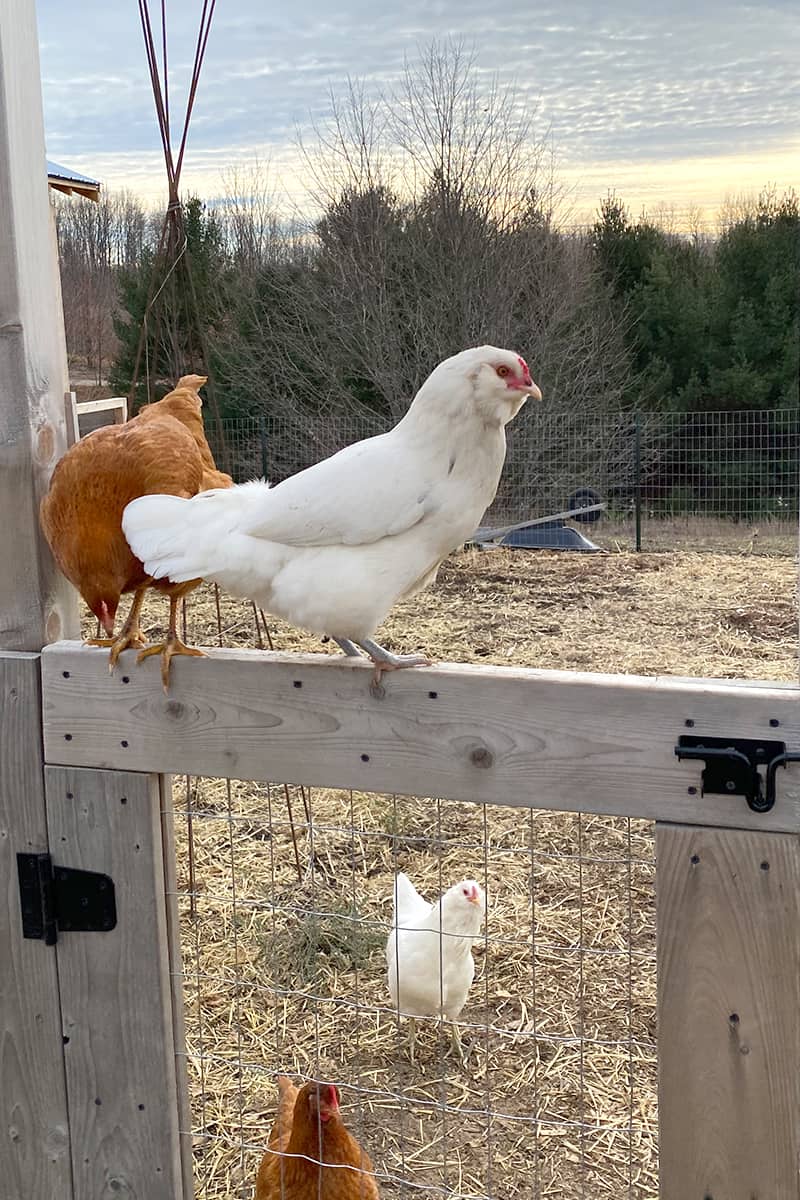
What is the best way to keep my chickens healthy?
Many things can happen to your backyard chickens, from parasites to predators and more. Here are a few quick tips for how to keep them healthy.
- Make sure they have a space to dust bath even in the winter. Adding in Diatomaceous Earth in the area they bathe. This agitates parasites like mites and lice, so they do not decide to make your chicken home for themselves.
- Dust bathing is also a way your hens connect and build relationships. It is a social experience that keeps them healthy.
- Offering plenty of activity so they do not attack one another. In the winter months, when there is less to peck, place out seed blocks or other things to give them tasks. They like to stay busy!
- Add ACV and a touch of Bronner’s to their water. This keeps them less susceptible and interesting to parasites.
- You can also add Chicken Nesting Box Herbs to their boxes to keep away parasites naturally.
What do you do with chickens in the wintertime?
You can build a ‘cold frame’ or greenhouse-style addition to your coop and cover it in clear plastic so that the birds will have plenty of space. They’ll be protected from windy weather with this shelter!
How do I keep my Backyard Chickens warm in winter?
Chickens are reptilian animals and actually thrive in the cold more than we realize. Here are a few things to know:
- If you live in a cold place, ensure your flock contains cold-hardy breeds that will handle the cold well.
- Make sure to have a heated water feeder and plenty of food on hand. They need both, even if they are not producing eggs, because it takes a TON of energy for them to stay warm.
- Use a deep bedding method to keep plenty of insulation.
- Ensure good ventilation and insulation in your coop but do not use a heat lamp.
- A heat lamp is dangerous to your hens and actually makes their bodies not work as well because they cannot use their natural ways to adapt to the cold.
- They grow specific feathers for winter that keep them cozy and warm. You will see them fluff them up in order to trap them in heat.
- Just make sure to have space for dust baths available to them, as this is when they are most likely to get lice or mites.
Will chickens lay eggs in the winter?
The hens stop laying eggs as daylight hours decrease in the fall, but you can keep them comfy with some light and warmth. If your chicken slows down or stops producing eggs during these colder months of the year, it’s because their bodies are telling them to take a break from working so hard for a while!
Can chickens be left alone for a week?
The chickens are not meant to be left alone for exceeding 7 days. They need a trusted friend, neighbor, or family member who can take care of them regularly in order that they may go out and do things around your house without being constantly worried about what will happen if they get neglected!
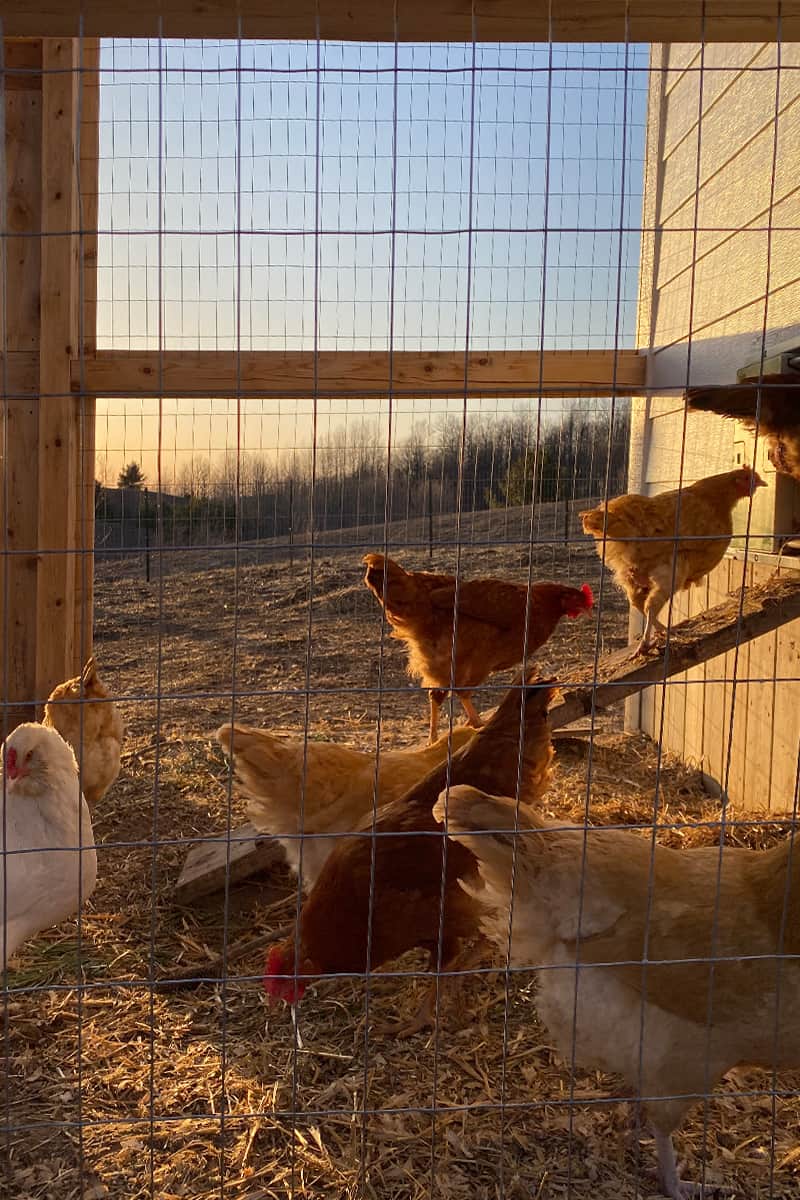
Are there other questions you have about chickens? There is a good chance we talked about them in this podcast with some of my friends who have two times the size flock we do. I am sure you will get tons of amazing info! If you have other questions about backyard chickens or homesteading with chickens, you can leave them below.
If these tips for raising chickens help you, consider checking these articles below —
- 18 Incredibly Creative Chicken Coop Ideas
- Best Heated Chicken Waterer
- How to Create a DIY Chicken Waterer
- Best Chicken Waterer
- What to Feed Chickens
Get your daily dose of gardening inspiration and education by following the Fresh Exchange social media pages, FB, IG, Pinterest, Youtube, and podcasts. Follow us now and start growing!
Want to take your gardening skills to the next level? Join the Fresh Exchange community and gain access to our exclusive gardening courses that will teach you everything you need to know to create a thriving garden. Sign up today and start your journey toward creating the garden of your dreams!


